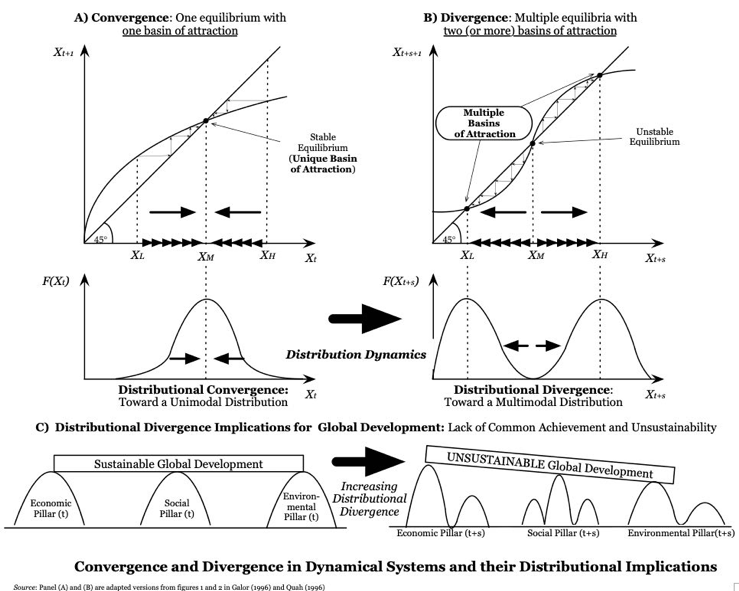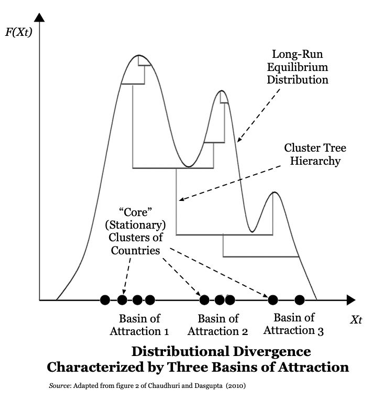グローバルな持続可能な開発の柱における分布の発散のテスト:新しい階層的クラスタリングアルゴリズムの統合
Sustainable global development is commonly view as an equilibrium that rests upon three pillars: economic transformation, social inclusion, and environmental sustainability. However, the cross-country convergence/divergence dynamics of such a multidimensional concept are not yet well understood. This project tests whether there is an increasing degree of distributional divergence in the pillars of sustainable development. To do so, it integrates the distribution dynamics framework of the economic growth econometrics literature with a new hierarchical clustering algorithm of the unsupervised machine learning literature. Specifically, distributional divergence is modeled as the formation of multiple basins of attraction (stationary clusters) that polarize or stratify the nonparametric kernel distribution of each supportive pillar. The figure below illustrates this modeling approach.

From a methodological standpoint, this research project applies and extends a non-parametric distribution-dynamics framework in four steps:
- Model the evolution of the distribution of each pillar as a continuous-time Markov chain process.
- Empirically study the transitional dynamics and the long-run equilibrium by estimating a transitional (Markovian) kernel and an ergodic distribution, respectively.
- Taking these two distributions as inputs, empirically test the existence of multiple modes (basins of attraction), both for each pillar independently and for the three pillars simultaneously.
- Extend the distribution-dynamics framework by integrating recent advances in unsupervised machine learning, in particular a density-based hierarchical clustering algorithm
As shown by the figure below, the identification of core (stationary) clusters of countries and the cluster tree hierarchy provide further information about multiple stratification patterns and the divergence that is occurring within the distribution of sustainable development. Ultimately, this kind of analysis could also be used as a new measuring device to track the progress of the Sustainable Development Goals(SDGs), which are adopted by all United Nations member states.

- 研究種目
- 科学研究費 若手研究
- 研究代表者
- メンデス・カルロス
- プロジェクト期間(年度)
- 2019-2021
